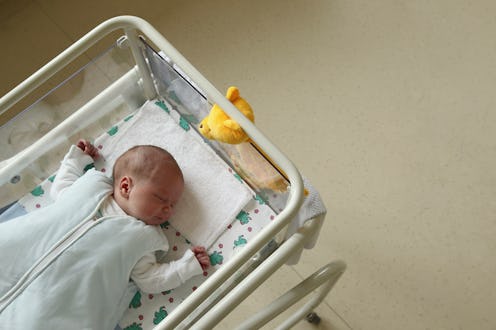News
It's Time We Had Paid Maternity Leave
On Dec. 3, the Supreme Court heard testimony from Peggy Young, a former UPS worker, who was put on unpaid leave when she became pregnant in 2006. Young is one of many American women who are, as chief counsel and policy director of the Judicial Crisis Network Carrie Severino told CBS News, “forced to choose between their pregnancies and their paychecks.” The United States is the only developed country in the world that doesn’t mandate paid maternity leave, and one of just seven total that don't require it — effectively shrugging off women who want to both work and have children.
There’s a reason why literally every other developed country has maternity leave. The United States is short-changing itself by keeping maternity leave unpaid. And short of all American women suddenly moving to Sweden (that would really show them...), the best solution is to introduce paid maternity leave, which only a minority of U.S. companies offer at present.
The Institute for Women’s Policy Research found that paid maternity leave benefits private companies as well as their employees. According to their July 2014 report:
Research shows that paid leave increases the likelihood that workers will return to work after childbirth, improves employee morale, has no or positive effects on workplace productivity, reduces costs to employers through improved employee retention, and improves family incomes.
OK, so paid maternity leave won’t make any companies go bankrupt. But what about the cost to the federal government? What about all the money taxpayers will have to pour in? The IWPR continues:
Research further suggests that expanding paid leave is likely to have economy-wide benefits such as reduced government spending on public assistance and increased labor force participation, which would bring concomitant economic gains, generating a larger tax base and increased consumer spending.
And that’s just the financial benefits. Paid maternity leave could also ensure that the next generation is healthier than the one before it. After the California Paid Family Leave Program was instituted, research revealed that mothers who were granted paid leave breastfed their children longer, which the National Office of Women’s Health has linked to lower rates of asthma, childhood leukemia, and Type 2 Diabetes.
Women who took paid leave also immunized their children at higher rates, and took their babies to the doctor for more checkups. Guess what else? Working means you can access health care, which is pretty good for health.
Despite claims to the contrary, paid maternity leave is really great for women, for their children, and for the economy. The Young case is an opportunity for SCOTUS to expand benefits for working parents. Let’s just hope the Notorious RBG can get those punks in line.
Images: Getty Images (2), Thank Progess
